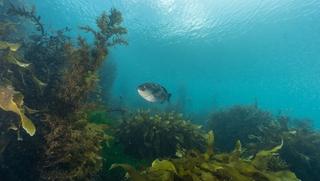Guidance for Marine Offsetting and Compensation in New Zealand
- Client Name
- Greater Wellington Regional Council
- Location
- New Zealand
- Marine science
- Ecology
- Climate resilience planning & design

Challenge
Coastal developments can lead to adverse effects on marine habitats and indigenous biodiversity. Understanding and managing these effects is complex and is made even more difficult with the lack of relevant guidance for marine environments. Understanding the tools available to quantify the level of effects and identify suitable approaches to avoid, minimise, remedy, offset or compensate for adverse effects is an important first step in this process.
Greater Wellington Regional Council were looking to develop a guidance document on how to mitigate, offset, or compensate adverse effects of developments on the coastal marine environment in New Zealand.
Solution
Our Principal Coastal Scientist, Pete Wilson, was the lead author on this report, which we began preparing late 2022. We drew on the experience of the wider team, who have a track record managing the effects of coastal developments from both applicant and regional council perspectives.
The guidance document highlights current knowledge and tools relating to marine mitigation, offsetting, and compensation, and gaps where they exist. The aim was to drive consistency in the collective approaches to marine offsetting and compensation and ensure that key words and concepts are used and understood with the same intent by consent applicants and decision makers.
The scope of the guidance includes the following:
An overview of the policy setting for offsetting and compensation, and principles to be applied;
- Discussion on how to determine the ecological value of coastal habitats and species that may be adversely affected by a development and that may be proposed as mitigation, offsetting, and/or compensation;
- Guidance on how the quantum of offsetting or compensation might be determined in the marine environment, including limitations that may apply; and
- Examples of practical measures and case studies of offsetting and compensating for biodiversity loss in marine ecosystems.
The final guidance document was published in January 2024 on the Greater Wellington Regional Council website (https://www.gw.govt.nz/document/21838/marine-offsetting-and-compensation-summary-of-management-guidance-and-policy).
Impact
The guidance document provides practitioners with best practice approaches to offset and compensate effects from coastal developments. It also assists with providing consistency in the use of key terms and concepts so that consent applicants and decision makers are using the same terminology.